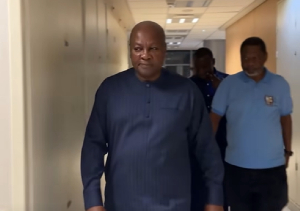Public Relation practitioners must prove their worth or shut up!
Global economy is in a gradual transition from the agricultural and labour intensive economies to a “knowledge-based economy.” What this means is that, economies are increasingly becoming dependent on knowledge which is gaining recognition as the driver of productivity and economic growth.
The key component of a knowledge economy is a greater reliance on intellectual capabilities than on physical inputs or natural resources. It is these capabilities that enable competitive organisations to integrate improvements in their various stages of production or service processes taking into consideration their customers’ interests, views, perceptions, beliefs and any other concern that might have influence on their performance.
In a knowledge-based economy, where organisations seek for information to outperform their competitors, the anchor on which they thrive is their ability to communicate, hence the need for public relations practitioners.
The dynamics of the 21st century presents opportunities for the public relations profession to thrive as more organisations realise the need to communicate their story. Companies, nonprofit organisations, religious bodies and governments continue to struggle with shifts in economic conditions, competitions, security concerns and public opinions that require interpretations to earn public understanding and trust.
For an organisation to suggest or think that it could survive the intense competition without public relations is just like driving in a reverse gear, particularly in a knowledge-based economy. Every organisation certainly needs a professional who will interpret the philosophies, policies, programmes and practices of management to the general public and also convey the public’s concerns to management. Public relation as a management function evaluates public attitudes, identifies the policies and procedures of an individual or an organisation with the public interest, and plans and executes a programme of action to earn public understanding and acceptance.
In this information and competitive age, it is pathetic to think that the job of a PR professional is limited to writing speeches, issuing press releases and inviting the media for programmes. No wonder some oranisations still think anybody at all could handle such tasks and so don’t find the need to look out for professionals. For some, PR is just about creating visibility, so once the company’s name is out there; there’s really no need for a PR practitioner. If this is really the case, will an organisation like Graphic Group Communications Limited (GGCL) have a dedicated office for its PR affairs? Why wouldn’t GGCL just use the Daily Graphic, the largest selling newspaper to champion its visibility agenda and do all its PR tasks?
The time has come for trained PR practitioners to prove to their employers that they are capable of studying and understanding attitudes, public moods, public needs and public aspirations as well as counsel management on such issues. Our PR practitioners must by their actions and deeds prove that they understand that PR is a two-way communication affair that seeks for areas of mutual interest to establish mutual understanding based on truth, knowledge and full information.
They must through their strategies prove to management that before they could gain the required attention, understanding and acceptance from target publics or audience, they ought to be involved in managements’ decision making process. No matter what the size of an organisation, it is believed that a PR department is only as good as its access to management.
The fact is, if PR practitioners are waiting for invitation to be part of management decision making process, then they should just forget it. There’re no empty chairs around the decision making table! You’ve got to prove your worth and establish your relevance to earn a ‘seat’ at that level.
Frank Agyemang
(agyemangfrank@gmail.com)
Opinions of Tuesday, 26 November 2013
Columnist: Agyemang, Frank














